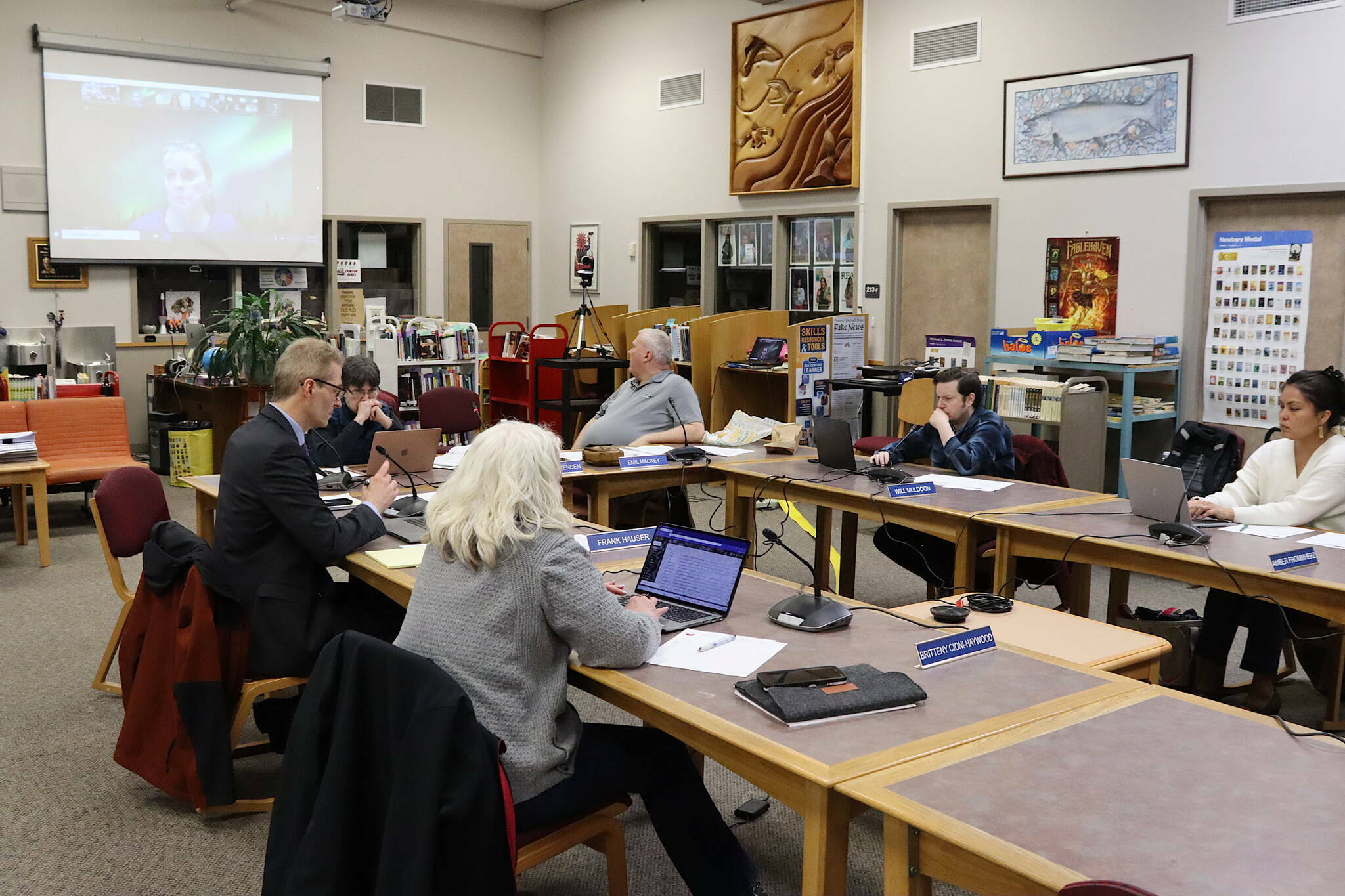Asking Juneau’s municipal government to take over nearly $4 million in “shared costs” and provide a zero-interest loan to the Juneau School District, to help solve both an immediate $8 million projected deficit and longer-term shortfalls, was approved by the Juneau Board of Education during a special meeting on Monday.
The district is in the early stages of attempting to resolve its financial crisis through what will likely involve drastic actions including school consolidations and closures. Juneau Assembly members agreed last week — some grudgingly — they are willing to help the district within legal limits imposed by the state, with a solution that balances the books for this fiscal year and next necessary by June 30.
A motion approved by the school board Monday authorizes Superintendent Frank Hauser to draft a proposed agreement for the City and Borough of Juneau to take over 75% of annual maintenance costs (estimated at $1.24 million for the current fiscal year), 66% of utilities ($1.36 million), 75% of property and liability insurance ($986,228), and 10% of operations/custodial costs ($402,350).
The zero-interest loan would be for the total remaining deficit the district is facing, which based on earlier state and city statements would be for a period of five years with repayment by the district beginning in the third year.
A key focus of school board members during Monday’s meeting is if provisions of the plan will pass the “red-face test” since the state limits the amount of money a municipality can provide a district for instruction-related purposes. The Juneau Assembly has provided the maximum such funding for many years, resulting in the evaluation of facilities used by both the city and school district for “non-instructional” purposes such as cultural and recreational activities.
As such, many of the comments by school board members were about how the percentages the city would take over were determined and if they reasonably resembled how much the municipality used the sites compared to the district.
City Attorney Robert Palmer told board members it appears the four categories in the district’s request can be funded to at least some extent within state and federal rules, although “we’re also in a little bit of uncharted waters here as to exactly how much.” He said part of the amount will depend on fair market value, part on how the facilities are used.
“If they are attributed to free public education I think the district needs to pay for those costs or work those tasks, but to the extent the costs are not directly attributable to free public education then those could be put into a special revenue fund and not accounted for in the operating fund,” he said.
Another factor in the school board’s discussion is how much funding the Assembly is willing to provide and with what conditions.
“They might come back and say ‘You know what? We liked your proposal, but here’s the tweaks we want,’” said Emil Mackey, the school board’s vice president. “And frankly we’re not in a position to really push back a lot.
Assembly members have expressed concerns that taking on millions in additional costs could result in actions such as raising the mill rate. Furthermore, the city would likely pay more than twice as much to maintain facilities as the district — with an estimate last week stating taking over $1.6 million of district maintenance could cost the city $4 million — but City Manager Katie Koester said there would be long-term savings due to less deferred and major maintenance.
Hauser, in a memo to the school board outlining the proposed sharing costs, stated there are advantages for both the city and district in using that approach to help resolve the financial crisis.
“There is a shared interest in safeguarding and maintaining the asset value of the facilities owned by the City and Borough of Juneau and operated by the Juneau School District, and there is a commitment by the district to manage and provide community services and programs that offer critical and valued service to the community,” he wrote.
The deficit, currently estimated at about $7.9 million, is attributed primarily to a series of accounting errors as well as flat funding by the state for many years, the latter of which is causing shortfalls for districts across the state.
The district is conducting an ongoing series of public input meetings, in-person and online, about the crisis and proposed remedies being evaluated. Recordings of previous meetings and documents about the budget situation are also being posted in dedicated sections at the district’s website.
• Contact Mark Sabbatini at mark.sabbatini@juneauempire.com or (907) 957-2306.

